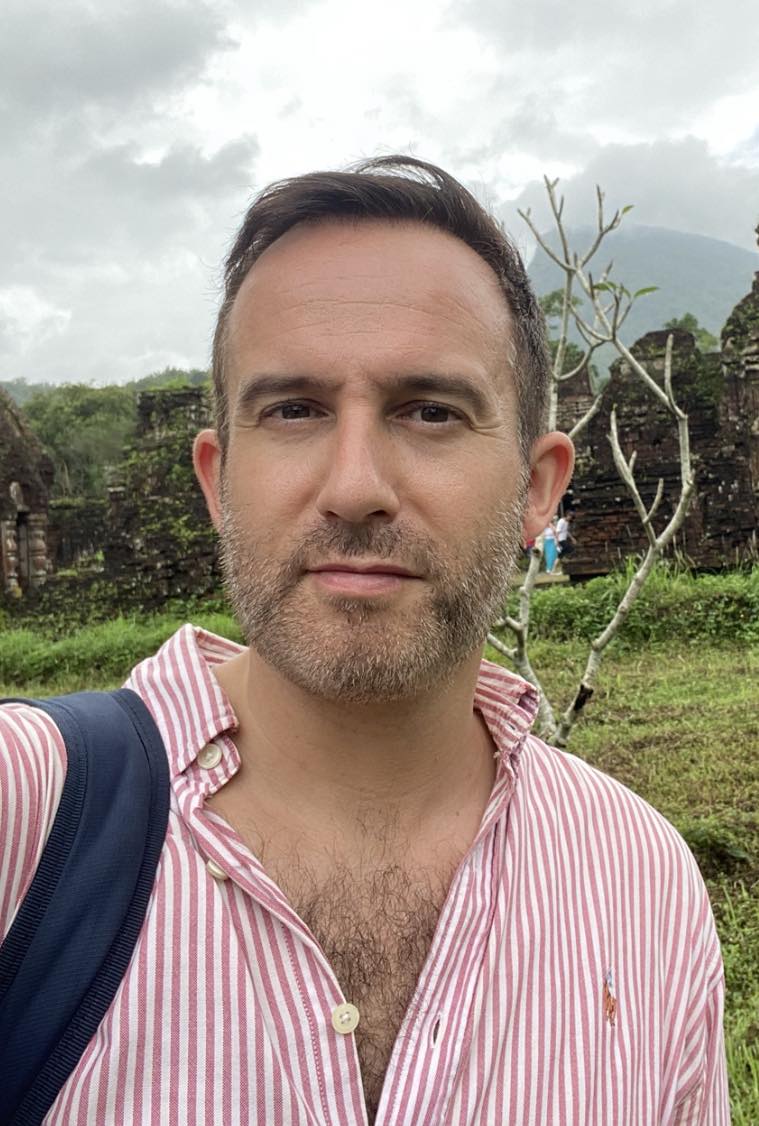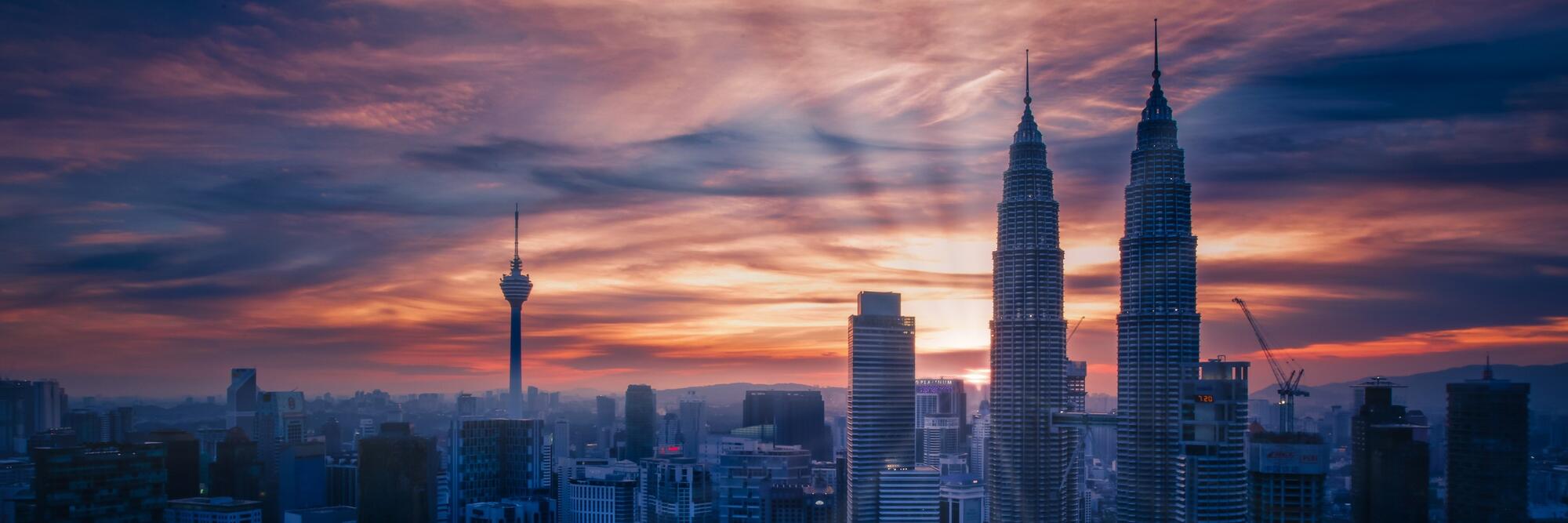Having taught in a primary school in East London for four years, Benjamin decided that he wanted to broaden his horizons. He found a job in Kuala Lumpur, Malaysia, and happily lived there from 2012 to 2023. During the extensive school and public holidays, Benjamin enjoyed travelling and eating his way across Southeast and Central Asia.
Over his weekends, he loved exploring the bars and eateries of KL and enjoyed friendships with fellow expats and Malaysians, many of whom he counts as his closest friends. Now repatriated and tutoring online, Benjamin is currently searching for his new horizon!
About Benjamin
Q: Where are you originally from?
A: Gloucester, UK
Q: What country and city did you move to?
A: Kuala Lumpur, Malaysia
Q: When did you move?
A: 2012
Q: Is this your first expat experience?
A: Yes
Q: Did you move here alone or with a spouse/partner or family?
A: Alone
Q: Reason for moving?
A: I was teaching in London, and wanted a new adventure!
Living in Kuala Lumpur, Malaysia
Q: What do you enjoy most about your host city and your new country of residence in general?
A: The ‘right size’ – comprising a vibrant mix of cultures, languages, peoples, food, and urban/parkland. The location within the country and SE Asia makes it easy to get out of and take advantage of cheap travel options. The friendliness of locals!
Q: Have you had any low points? What do you miss most about home?
A: The weather can be misleading, and you forget what true seasons are, as it rains a lot and is always hot!
Q: What misconceptions about Malaysia, if any, have you learned were not true?
A: Malaysia is SE Asia’s best kept secret, and has wonderful food, nature, culture, and people that are equal to the countries that lie around it.
Q: What are the biggest adjustments you had to make when settling into expat life here? Did you experience culture shock at all?
A: There’s a lot of bureaucracy and surprising processes in Malaysia that you simply must embrace.
Q: What are your favourite things to do on the weekend? Any particular places or experiences you’d recommend to fellow expats?
A: An early morning hike followed by a roti canai and teh tarik… is what many people do. I prefer to sleep off a hangover, go to the gym, and then be in the condo pool by 11:30am awaiting a curry laksa to be delivered by Grab.
Q: What’s the cost of living in Malaysia compared to home? Are there specific things that are especially expensive or cheap there?
A: Petrol (you’ll need a car) and rent are much cheaper than in Britain, as are taxis, trains, domestic and short-haul flights. Alcohol (in supermarkets) and meat are more expensive.
Q: What’s public transport like in Kuala Lumpur and across Malaysia?
A: There is a steadily growing train system (LRT and MRT) but it is rather limited depending on your journey, however Grab, AirAsia, and InDrive taxis are cheap.
Q: What do you think of the healthcare available in Malaysia? What should expats expect from local doctors and hospitals?
A: There are many options depending on your budget. Premium hospitals/healthcare centres such as Prince Court, Pantai, Gleneagles will set you back a lot, but the care is excellent. In most residential areas you can find smaller clinics for everyday complaints, and also places for cosmetic surgery, which is a booming industry in Malaysia.
Q: What’s the standard of housing like in Kuala Lumpur? What different options are available?
A: There is something to suit every budget. The last decade has seen a massive increase in condos appearing, and it really is a ‘renters market’ as there is a wide choice of places to live in, for families, singles, those with pets etc.
Q: Any areas or suburbs you’d recommend for expats to live in?
A: It rather depends on where you’re working, but the standard places to consider are Bangsar, Bangsar South, Mont Kiara, Sri Hartamas, KLCC (though more expensive, so should be carefully considered), Damansara (this is a massive and potentially expensive area, so I’d consider Heights, Medan, Bukit), Taman Tun Dr Ismail (TTDI) and my own favourite, Taman Desa.
Meeting people and making friends in Kuala Lumpur, Malaysia
Q: Was meeting people and making friends easy? How did you go about meeting new people?
A: Yes, very easy as Malaysians are receptive to foreigners, especially if you’re Western.
Q: Have you made friends with locals, or do you mix mainly with other expats? What advice would you give to new expats looking to make friends with the locals?
A: I enjoyed a great balance of both local and foreign friends.
Working in Kuala Lumpur, Malaysia
Q: How easy or difficult was getting a work permit and/or visa? Did you tackle the visa process yourself, or did you enlist the services of an immigration consultant?
A: My school arranged the visa.
Q: What is the economic climate in Kuala Lumpur like?
A: The prices of food and drink, fuel and general goods gently rose over a decade, but accommodation remained low.
Q: How does the work culture differ from home?
A: Very different, but this does depend on your job!
Family and children in Kuala Lumpur, Malaysia
Q: How has your partner adjusted to your new home?
A: I am single.
Q: Did your children settle in easily? What were the biggest challenges for them during the move?
A: I have no kids that I know of.
Q: What are your favourite family attractions and activities in Kuala Lumpur?
A: KLCC park, Sunway Lagoon, Kidzania
Q: What are the schools like? Any particular suggestions?
A: Over 300 international schools in Malaysia, but that’s a very loose term! The best are Alice Smith, Gardens International School, BSKL, ISKL and MKIS (US system), ISP, St Josephs, and Nexus. Other second-tier but good ones include ELC, GEMS, Fairview, HELP, Sri KDU.
Final thoughts
Q: Any advice you’d like to offer to new arrivals in Malaysia?
A: Embrace the new as much as possible! Try the food, walk the streets, talk to the people, learn some Bahasa Malasia (Malay language), and feel the heat!
Q: What preconceptions about Malaysia did you learn to think differently about upon moving there?
A: Malaysians comprise (roughly) three groups of people – Malays (vast majority), Chinese and Indian. East Malaysia (on Borneo) is at once part of Malaysia, but very separate too, and consists of many tribes, which is often forgotten and marginalised.
►Interviewed in January 2024



